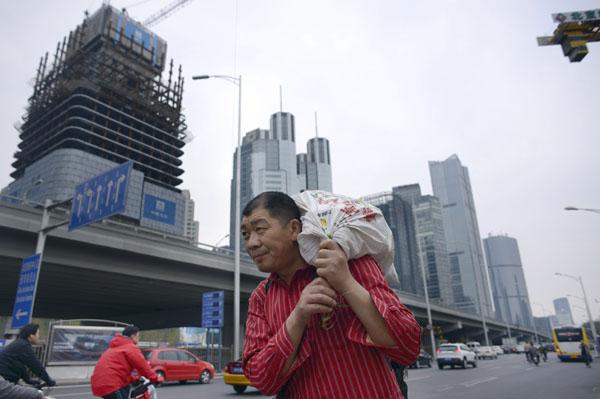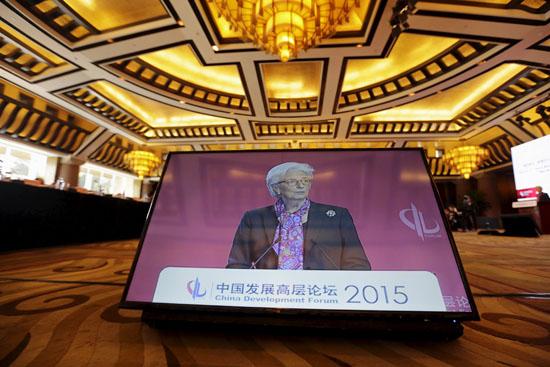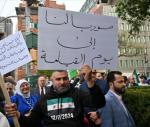You are here
Israel, Egypt apply to join China-backed Asian Infrastructure Investment Bank
By Agencies - Apr 01,2015 - Last updated at Apr 01,2015

TEL AVIV — Prime Minister Benjamin Netanyahu has signed a letter of application for Israel to join the China-led Asian Infrastructure Investment Bank (AIIB), the Israeli foreign ministry said on Wednesday.
More than 40 countries, including Australia, South Korea, Britain, France, Germany and Italy, have said they would sign up to the AIIB, with Japan and the United States the two notable absentees.
China set a March 31 deadline to become a founding member of the AIIB, an institution that could enhance Beijing's regional and global influence.
Washington initially tried to dissuade its allies from joining the AIIB, seeing it as a challenge to the World Bank and Asian Development Bank (ADB) over which the US exerts considerable influence, but changed tack after many signed up for it.
US Treasury Secretary Jack Lew said on Tuesday that Washington would welcome the AIIB as long as it complements existing institutions and adopts high governance standards.
In a statement on its website, the foreign ministry said Israel's AIIB membership would open up opportunities to integrate Israeli companies into infrastructure projects it financed.
Israeli companies are increasingly turning to Asia to capture a boom in demand for their technology, as the government urges them to diversify export markets in response to Europe's rising anti-Semitism and potential trade sanctions.
The new bank plans to invest $100 billion in infrastructure projects in Asian countries. Half of that amount has already been budgeted by China.
Separately, Egypt is interested in joining AIIB, the foreign ministry spokesman said on Monday.
"Egypt has applied to join the Asian Infrastructure Investment Bank," foreign ministry spokesman Badr Abdel Atti told AFP.
Elsewhere, Chinese state media quoted officials as saying Wednesday that Taiwan is welcome to participate in AIIB if it does so "under an appropriate name".
Beijing regards Taiwan as part of its territory and opposes international recognition for the island, often curtailing its involvement in global agreements. The two split in 1949 at the end of the Chinese civil war.
But Taipei on Tuesday issued a letter of intent to join the AIIB.
"The AIIB is open and inclusive," said Ma Xiaoguang, a spokesman for China's Taiwan Affairs Office, according to Beijing's official Xinhua news agency. "We welcome Taiwan to participate in the AIIB under an appropriate name."
On Tuesday, Beijing's foreign ministry spokeswoman Hua Chunying had appeared to rebuff the application, saying: "As for Taiwan joining, we maintain that we should avoid the 'two Chinas' and 'one China, one Taiwan' situation."
On Wednesday, Premier Mao Chih-kuo told a group of foreign media reporters that Taiwan would like to join the bank if it was not "belittled".
"The caucuses of the ruling and opposition parties in parliament reached an agreement yesterday saying Taiwan would like to apply to join AIIB if Taiwan is not belittled," he said.
"They demanded that the letter of intent be sent straight by the finance ministry to the AIIB preparatory committee, and the next developments would still require supervision of parliament," he added.
Taiwan is not a member of the United Nations, World Bank or International Monetary Fund but it has joined some international organisations under different names.
The International Olympic Committee refers to it as "Chinese Taipei", and it is known as the Separate Customs Territory of Taiwan, Penghu, Kinmen and Matsu at the World Trade Organisation.
It is a member of the ADB under the name "Taipei, China", while officially the government refers to itself as the Republic of China.
Taipei's plans to join the bank have faced opposition at home. Nearly 300 people gathered outside the Presidential Office late Tuesday to protest against the proposal.
Around 40 protesters linked hands and sat near the entrance to the presidential office, which is a restricted area, and refused to leave. They scuffled with police who tried to remove them and were eventually carried away one by one. No arrests were made.
"The Ma government is completely unwilling to communicate with the people and resolve their concerns, and continues to... sell out Taiwanese people's interests," protest group Black Island Youth Nation Front said.
The group was one of the leaders of the Sunflower Movement that occupied parliament for more than three weeks last year over a trade pact with China.
Related Articles
Jordan and 56 other countries will be founding members of the China-led Asian Infrastructure Investment Bank (AIIB), according to a local official and the Chinese finance ministry.
China received critical support from the International Monetary Fund (IMF) and the Asian Development Bank (ADB) on Sunday for its goal of establishing a new Chinese-led multilateral lender, adding to a growing wave of endorsements that has worried the United States.
AMMAN — Jordan was among the 50 of the 57 founding countries of the China-led Asian Infrastructure Investment Bank (AIIB) which signed up to

















